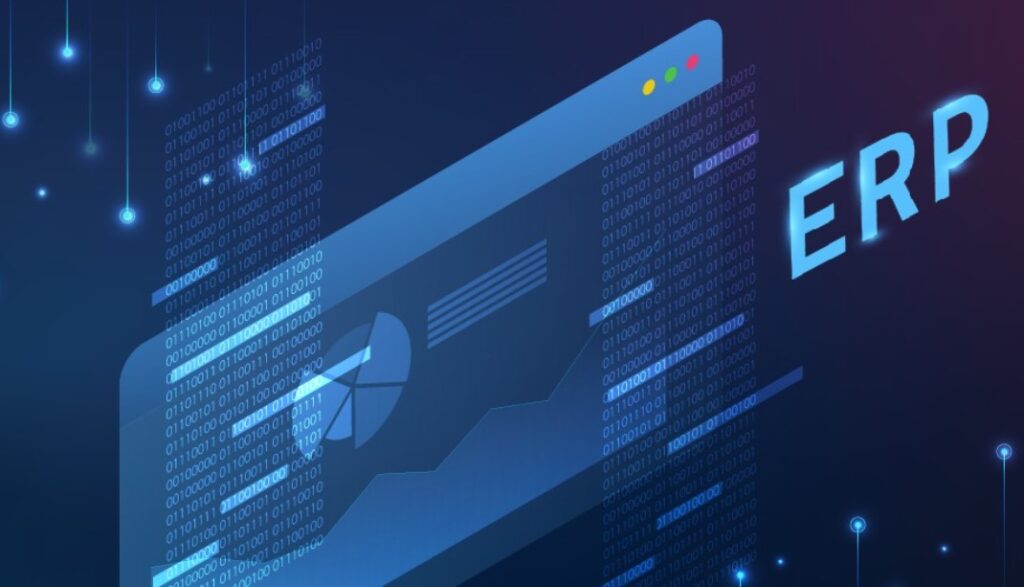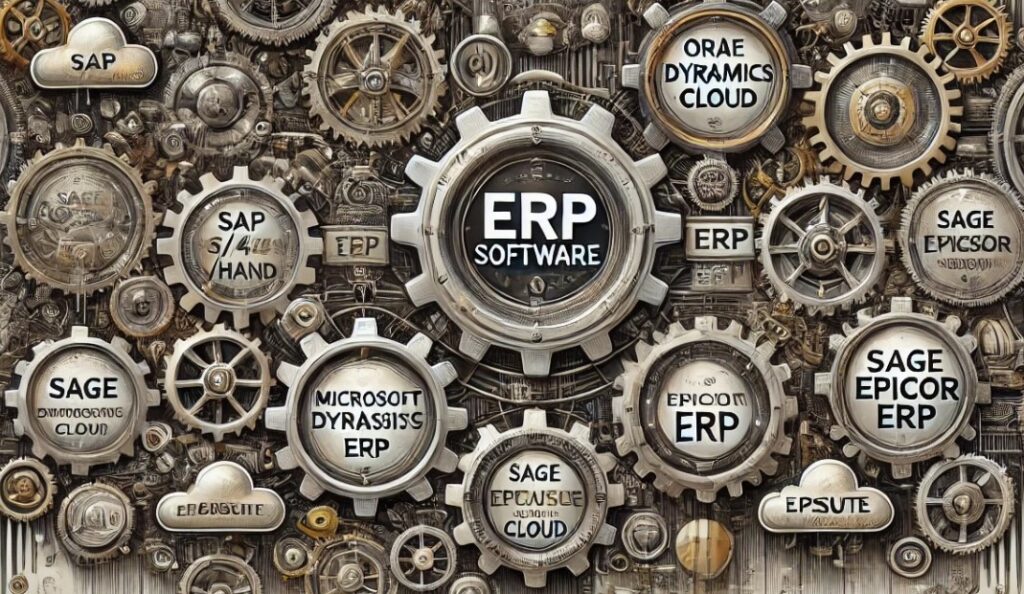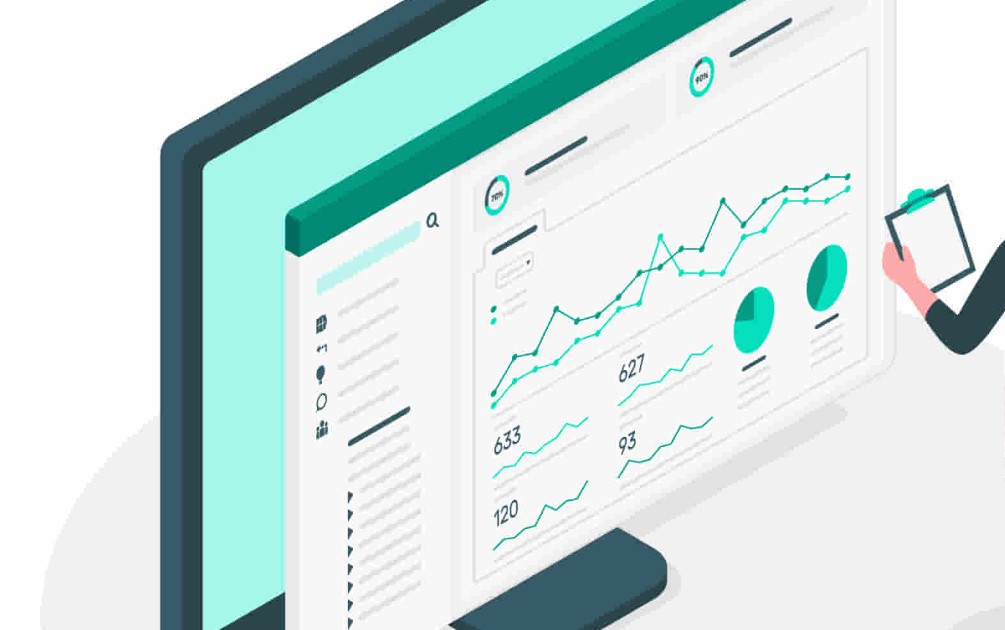In today’s fast-paced business environment, Cloud ERP solutions are essential tools for companies looking to streamline their operations, improve data accuracy, and achieve real-time decision-making. Whether you’re a small business or an enterprise, the right ERP system can optimize your processes and drive growth. In this article, we’ll explore the top cloud ERP solutions, their benefits, features, and how they can help solve critical business challenges.
What is Cloud ERP?

Cloud ERP (Enterprise Resource Planning) is a type of software that allows businesses to manage their operations in the cloud, from accounting to supply chain management. It integrates various business processes into one unified system, giving companies a comprehensive view of their operations. With cloud ERP, you no longer need to invest heavily in on-premise infrastructure. Instead, you get the flexibility and scalability that comes with cloud technology.
Key Benefits of Cloud ERP
- Cost-Effective: Eliminates the need for expensive hardware and software maintenance.
- Scalable: Easily adapt as your business grows without worrying about server capacity.
- Real-Time Access: Access your data anytime, anywhere, which is essential for remote teams.
- Automated Updates: Always stay updated with the latest features and security patches without manual intervention.
Why Choose Cloud ERP Solutions?

Choosing Cloud ERP (Enterprise Resource Planning) solutions is a strategic decision that can have a profound impact on your business operations. Traditional on-premise ERP systems often come with a significant financial burden, require dedicated IT teams, and are less adaptable to the rapidly evolving demands of modern business. In contrast, cloud ERP solutions are designed to be more flexible, cost-effective, and scalable, making them a superior choice for businesses of all sizes.
Let’s dive deeper into the specific reasons why cloud ERP solutions are becoming the preferred choice for businesses today:
Cost Efficiency
One of the most compelling reasons to opt for cloud ERP solutions is the reduction in upfront costs. Traditional on-premise ERP systems require businesses to invest heavily in expensive hardware, servers, and ongoing IT maintenance. Not to mention, companies must also budget for software upgrades, patches, and security measures, all of which need constant attention from an IT department.
In contrast, cloud ERP solutions operate on a subscription-based model (Software as a Service – SaaS), which significantly lowers the barrier to entry. Instead of incurring large capital expenses, businesses pay a monthly or annual fee based on usage, making it easier to manage cash flow. Moreover, cloud ERP eliminates the need for on-premise servers and infrastructure, freeing businesses from the ongoing costs of hardware maintenance and software updates.
For instance, small and medium-sized businesses (SMBs) that might not have the budget for traditional ERP solutions can still access enterprise-grade software through cloud ERP providers like Odoo or NetSuite, both of which offer customizable pricing models.
Scalability and Flexibility
In today’s dynamic market, businesses must be able to scale up or down quickly based on their needs. This is where cloud ERP solutions excel. With an on-premise ERP, scaling up means purchasing additional hardware, licenses, and potentially restructuring the IT infrastructure. This is not only costly but time-consuming.
However, with cloud ERP, you can easily adjust your subscription and add more users, storage, or features as your business grows. The scalability is virtually unlimited since the provider manages the infrastructure on their end. This pay-as-you-grow model allows businesses to remain agile and respond to market changes without overcommitting resources.
For example, if a business expands its operations to multiple regions, it can easily integrate additional features for multi-currency support, international tax compliance, and other region-specific functionalities. This flexibility ensures that your cloud ERP solution evolves alongside your business without disruption.
Real-Time Data Access and Decision Making
One of the standout benefits of cloud ERP is real-time data access. With traditional ERP systems, accessing information can be cumbersome, especially when it is stored on local servers. Employees might only be able to access data from specific devices or locations, limiting flexibility.
Cloud ERP solutions, on the other hand, offer anytime, anywhere access to critical business data. All you need is an internet connection, and you can log in to your ERP system from any device—whether it’s a laptop, tablet, or smartphone. This is particularly beneficial for businesses with remote or global teams, as it allows employees to collaborate seamlessly, access the latest data, and make real-time decisions no matter where they are located.
Moreover, real-time data reporting ensures that decision-makers are always working with the most up-to-date information. This enables faster, more informed decision-making, which can give businesses a competitive advantage in responding to market trends, customer needs, and operational challenges.
Automatic Updates and Maintenance
Unlike traditional on-premise systems, which require manual software updates and patches, cloud ERP systems are automatically updated by the provider. This means that your ERP solution is always up to date with the latest features, security protocols, and performance improvements without any downtime or intervention from your IT team.
These automatic updates are particularly beneficial for businesses that might not have the resources to manage frequent software updates. For example, security vulnerabilities can be patched in real-time, ensuring that your data remains secure and compliant with industry regulations.
By leveraging automatic updates, businesses can focus on their core activities without worrying about falling behind on technological advancements. This not only saves time but also ensures that you are always using the most advanced ERP technology available.
Enhanced Security and Data Protection
One of the concerns many businesses have about moving to the cloud is data security. However, cloud ERP solutions are often more secure than on-premise systems. Why? Because cloud ERP providers invest heavily in enterprise-grade security measures to protect their customers’ data.
Cloud ERP vendors employ advanced encryption protocols, multi-factor authentication, and regular security audits to ensure that their systems are protected against cyber threats. Additionally, cloud ERP systems often have built-in disaster recovery and data backup mechanisms. In the event of a system failure or cyberattack, businesses can recover their data quickly, minimizing downtime.
For example, providers like SAP S/4HANA Cloud offer compliance with industry-specific security standards, ensuring that businesses in highly regulated industries (like finance or healthcare) can meet their legal obligations while keeping their data secure.
Simplified Integration with Other Systems
Modern businesses often use a variety of software applications to manage different aspects of their operations—accounting, customer relationship management (CRM), human resources, etc. With an on-premise ERP system, integrating these different platforms can be challenging and costly.
Cloud ERP solutions, however, are designed with integration in mind. Many cloud ERP systems offer built-in APIs (Application Programming Interfaces) that allow businesses to seamlessly connect their ERP with other software systems. Whether you’re using an eCommerce platform, a CRM system, or an inventory management tool, cloud ERP can bring all these elements together into one unified platform.
This seamless integration ensures that data flows smoothly between different systems, reducing data silos and improving operational efficiency. For example, Microsoft Dynamics 365 integrates easily with Microsoft Office products, making it ideal for businesses that already rely on Microsoft’s ecosystem.
Improved Collaboration and Workflow Optimization
With cloud ERP systems, collaboration across departments becomes significantly easier. Since all business functions are integrated into a single platform, team members can access the same data and work together more effectively. There’s no need to manually transfer information between departments or rely on outdated reports.
This enhanced collaboration leads to more efficient workflow optimization. For example, finance teams can immediately access inventory data when preparing budgets, and sales teams can see real-time product availability. This leads to faster decision-making and fewer bottlenecks in processes.
Additionally, many cloud ERP platforms offer built-in communication tools like messaging and task assignment, allowing employees to collaborate directly within the ERP environment. This fosters real-time collaboration, further improving operational efficiency.
Sustainability and Eco-Friendliness
Cloud ERP solutions also align with sustainability goals. By moving your operations to the cloud, you reduce the need for physical infrastructure, thus lowering your business’s energy consumption. Data centers that host cloud ERP systems are often more energy-efficient than traditional on-premise server rooms, thanks to economies of scale and optimized resource allocation.
Many cloud ERP providers, like Google Cloud and Microsoft Azure, are also committed to using renewable energy sources, further reducing the carbon footprint of businesses that opt for cloud-based solutions.
Cloud ERP solutions offer a wide range of benefits that make them the superior choice for businesses of all sizes. From cost savings and scalability to real-time data access and improved collaboration, cloud ERP systems empower businesses to stay competitive in a fast-evolving market. Whether you’re a small startup or a large enterprise, moving to a cloud ERP solution can help you streamline your operations, reduce costs, and gain a competitive advantage.
Top Cloud ERP Solutions in 2024

Let’s dive into the top Cloud ERP solutions available in 2024. Each of these products offers a unique set of features to help businesses solve their most pressing challenges.
1. NetSuite ERP by Oracle
NetSuite ERP is one of the leading cloud ERP systems for small to medium-sized businesses. It offers a full suite of business applications, including financial management, inventory management, and CRM.
- Use Case: Best for businesses looking for an all-in-one ERP solution.
- Features:
- Financial management
- Inventory management
- Integrated CRM
- HR management tools
- Pros: Highly customizable, scalable, excellent user interface
- Cons: Expensive for small businesses, longer implementation time
- Price: Starts at $999 per month
- Where to Buy: NetSuite
2. SAP S/4HANA Cloud
SAP S/4HANA Cloud is a comprehensive ERP solution designed for large enterprises. It integrates AI, machine learning, and advanced analytics to streamline business processes.
- Use Case: Best for large enterprises needing advanced AI-powered analytics.
- Features:
- AI and machine learning integration
- Real-time analytics
- Supply chain management
- Financial management
- Pros: Advanced analytics, suitable for global enterprises
- Cons: Expensive and complex to implement
- Price: Custom pricing based on business needs
- Where to Buy: SAP
3. Microsoft Dynamics 365
Microsoft Dynamics 365 is a robust ERP and CRM solution that integrates seamlessly with Microsoft Office products. It’s ideal for companies using Microsoft’s ecosystem.
- Use Case: Best for businesses already using Microsoft products.
- Features:
- Financial management
- Sales and customer service integration
- Project management tools
- Pros: Seamless integration with Microsoft Office, excellent for small to medium-sized businesses
- Cons: Limited customization options
- Price: Starts at $40 per user per month
- Where to Buy: Microsoft
4. Acumatica Cloud ERP
Acumatica Cloud ERP is known for its usability and flexibility, making it a popular choice among mid-sized companies. Its modular design allows businesses to choose the exact features they need.
- Use Case: Best for growing mid-sized companies looking for flexibility.
- Features:
- Financial management
- CRM integration
- Project accounting
- Inventory management
- Pros: Flexible, easy to scale, modular pricing
- Cons: Limited global capabilities
- Price: Custom pricing
- Where to Buy: Acumatica
5. Odoo ERP
Odoo is an open-source ERP system offering a wide range of modules that cover everything from inventory to human resources. It’s highly customizable, making it a great fit for small and medium businesses.
- Use Case: Best for small to medium businesses needing a customizable, open-source solution.
- Features:
- Open-source platform
- Inventory and manufacturing management
- CRM and eCommerce integration
- Pros: Customizable, affordable, large user community
- Cons: Requires technical knowledge for customization
- Price: Starts at $24 per user per month
- Where to Buy: Odoo
Product Comparison Table
| ERP Solution | Use Case | Pros | Cons | Price | Features |
|---|---|---|---|---|---|
| NetSuite ERP | All-in-one ERP for SMBs | Customizable, scalable | Expensive | $999/month | Financial management, Inventory, CRM |
| SAP S/4HANA Cloud | Large enterprises with AI needs | AI integration, global scalability | Complex to implement | Custom Pricing | AI, Machine Learning, Financial management |
| Microsoft Dynamics 365 | Small businesses using Microsoft | Seamless MS Office integration | Limited customization | $40/user/month | Financial, Sales, Project management |
| Acumatica Cloud ERP | Growing mid-sized businesses | Flexible, modular | Limited global reach | Custom Pricing | Financial, CRM, Project accounting |
| Odoo ERP | SMBs looking for customization | Affordable, customizable | Requires technical expertise | $24/user/month | Inventory, Manufacturing, CRM, eCommerce |
Benefits of Using Cloud ERP Solutions

1. Cost Savings
One of the main advantages of cloud ERP solutions is that they eliminate the need for expensive hardware and ongoing IT maintenance. This can save businesses thousands of dollars each year.
2. Increased Productivity
With real-time data access, your team can make quicker decisions and improve overall productivity. Automating repetitive tasks frees up time for more strategic work.
3. Scalability
As your business grows, your cloud ERP system can grow with you. Most solutions offer scalable options that can be adjusted as your business needs change.
Where and How to Buy Cloud ERP Solutions

- NetSuite ERP: Purchase directly from NetSuite or through an official reseller.
- SAP S/4HANA Cloud: Available through SAP or an accredited partner.
- Microsoft Dynamics 365: Buy from Microsoft or their partner network.
- Acumatica: Visit Acumatica for pricing details and purchase options.
- Odoo: You can purchase Odoo directly from their official website.
FAQs About Cloud ERP Solutions
1. What is the difference between cloud ERP and on-premise ERP? Cloud ERP is hosted on remote servers and accessed via the internet, whereas on-premise ERP is installed on local servers within a business.
2. How secure is cloud ERP? Most cloud ERP providers offer advanced security features, including encryption, two-factor authentication, and regular security updates.
3. How long does it take to implement a cloud ERP system? Implementation times can vary based on the complexity of the solution, but it typically takes a few months.
4. What are the ongoing costs of cloud ERP? In addition to the subscription fee, there may be costs for additional features, storage, and support services.
5. Can cloud ERP integrate with other business software? Yes, most cloud ERP solutions offer integration with popular business tools like CRM, eCommerce platforms, and third-party applications.
By choosing the right Cloud ERP solution, your business can enhance efficiency, reduce costs, and gain a competitive edge in the market. Explore the top options above and make an informed decision that meets your business needs.
